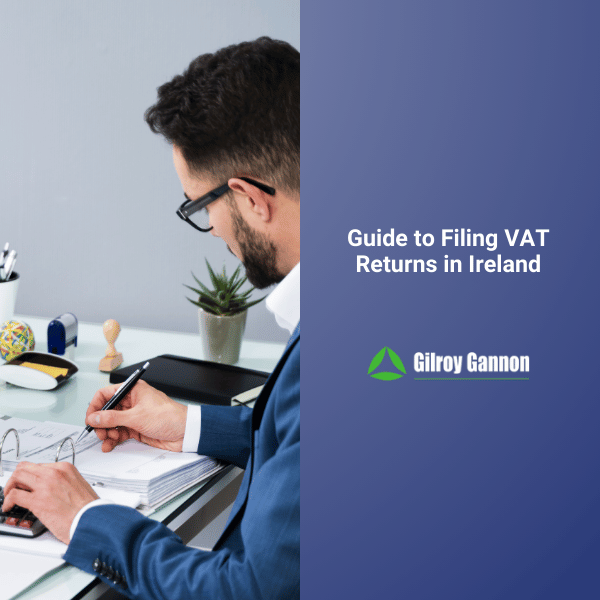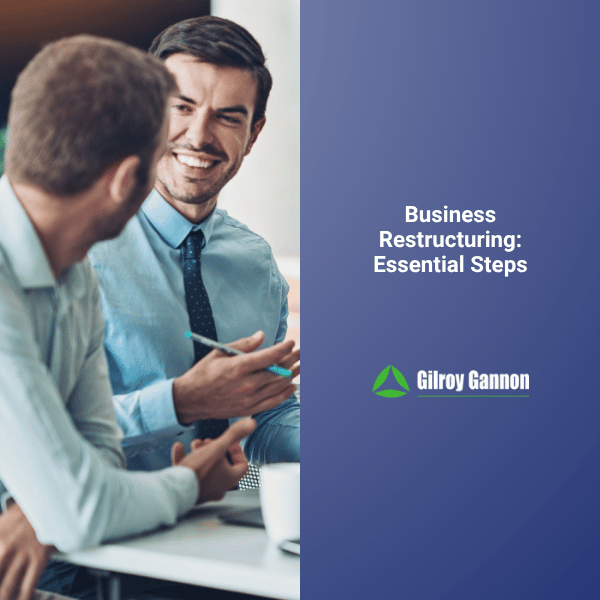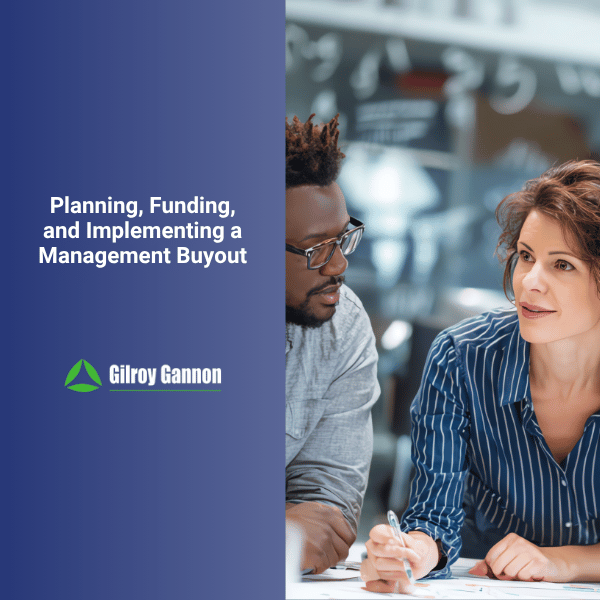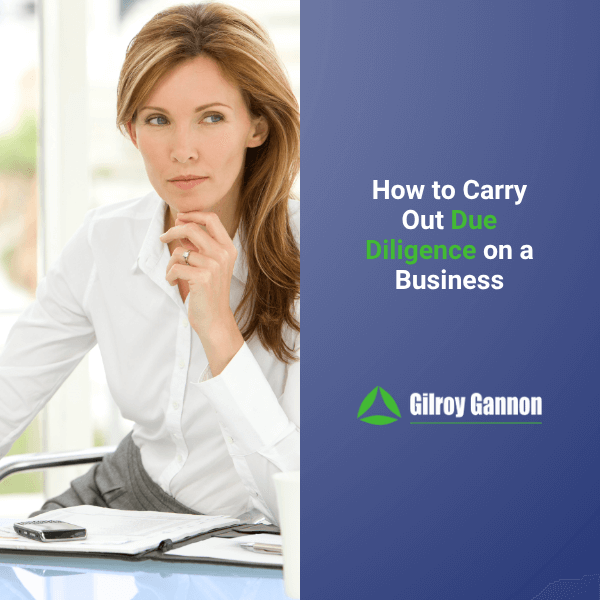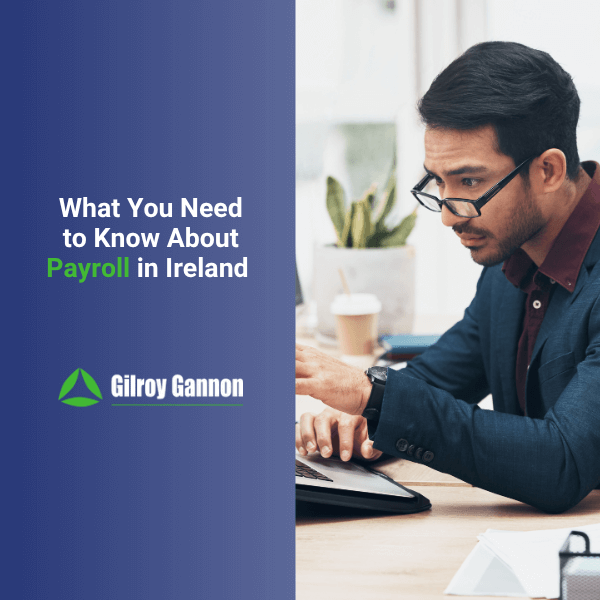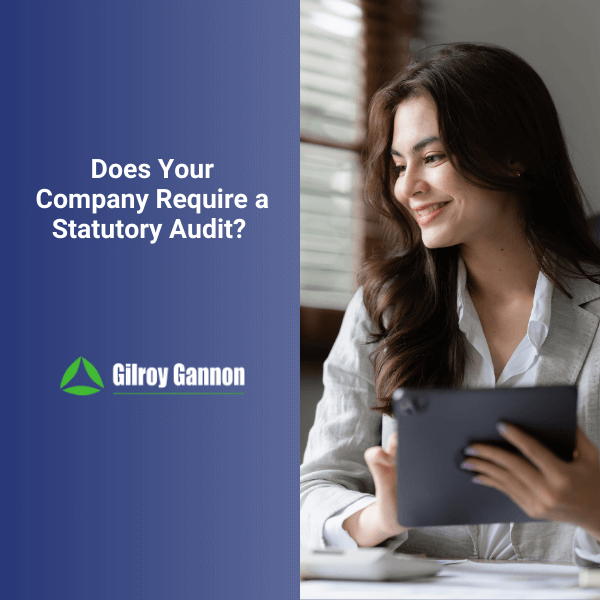How to Choose the Right Accountant for Your Business

Choosing an accountant is an important decision for your business whether you are hiring an accountant for the first time or changing your accountant because your business is growing. It’s an important decision for financial reasons and to ensure your business meets its tax and regulatory obligations. There is also a wide range of options available.
For example, there are accountants who will handle the various accountancy tasks that are currently taking up too much of your time. There are then other accountants who will also handle all those tasks in addition to proactively helping you achieve your business goals through advice, guidance, and practical support.
In this guide, we highlight 10 factors you should consider when choosing the right accountant for your business.
Understand Your Needs
The starting point is to understand your requirements.
- What do you want the accountant to do?
- What are the challenges your business is currently facing?
- Do you need specific advice or guidance?
- If you currently have an accountant, what areas of service would you like to see improved?
These are just some of the questions you should consider when defining your accounting needs. It is also beneficial to look to the future and how you think your accountancy and business needs might change or evolve.
Size of Firm
There is a vast range of options available when choosing an accountant from part-time freelance accountants all the way up to global corporations. Each option has pros and cons. For example, a freelance accountant or small accountancy firm will have limited resources and expertise. Resources and expertise are not an issue for a global accountancy firm, but you are more likely to be treated as just a number on their books.
The best approach for most small and medium-sized businesses is to choose an accountancy firm that is large enough to have the skills, expertise, and resources that your business will need but still offers a personal level of service. In other words, a standard of service where you can speak to the partners when necessary and where the accountant assigned to your business is invested in your success and works to build a strong relationship.
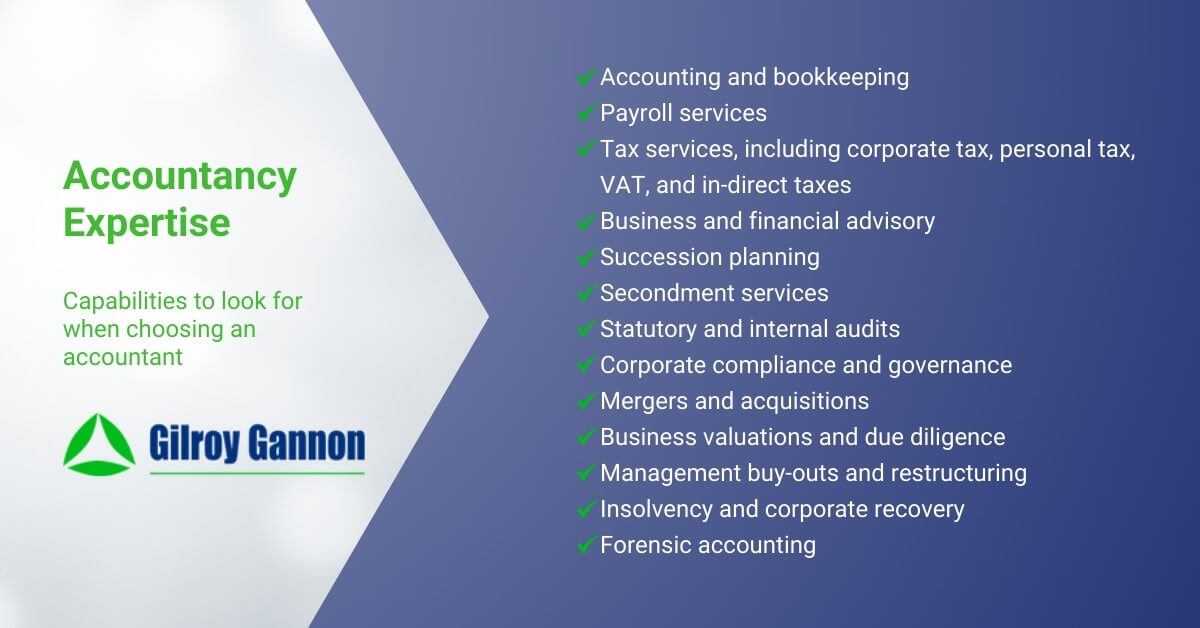
Regulated Accountants
As well as different sizes and types of firms, there are also different levels of qualification and industry recognition when it comes to accountants. The most important distinction to highlight is the difference between an accountant and a Chartered Accountant.
In Ireland, a Chartered Accountant is a regulated member of Chartered Accountants Ireland or the Association of Chartered Certified Accountants. To achieve the Chartered status, the accountant must be degree-level qualified, experienced, complete a professional competence programme, and operate according to defined professional standards.
Choosing a Chartered Accountant will give you peace of mind that you are getting a standard of service that meets industry best practice standards.
Scalability
If you want to grow and expand your business, it’s important to choose an accountant who can scale their service in line with your growing business. This includes the range and complexity of services that are offered, but it also includes the levels of expertise available.
For example, you might be planning to expand your business beyond Ireland. In this situation, it makes sense to choose an accountancy firm with export business experience.
Expertise
It is also beneficial to choose an accountant with expertise relevant to your business. This could be expertise in your industry, size of business, or type of business. An example of the latter is a business that has ambitious growth plans. It makes sense in this situation to choose an accountancy firm that has experience working with fast-growing businesses.
Value-Added Service
There are practical financial, accountancy, and tax services that your accountant can help you with, and they can provide you with advice when you ask for it. However, accountants who take a proactive interest in your business and its success offer added value.
Reputation
You will quickly get an understanding of the type of service you can expect to receive by assessing the accountant’s reputation. Speak to people you know who use the accountant or have done so in the past. You can also ask for references and read online reviews and testimonials.
Software
In some situations, accountancy software is an important consideration. Some accountants use specific accountancy software that you may have to migrate to if you want to use their services.
Fee Structure
Cost is always important, but it’s also crucial to consider the value the accountant will bring to your business. Understanding the fee structure is essential, too, as this will prevent surprises when your accountant sends you invoices.
Do You Like Them?
The accountant you choose will be an important partner for your business over many years. Therefore, as with most business relationships, it is beneficial if you get on with them. Do you feel comfortable asking questions and seeking advice? Are you happy with how they communicate? Considerations like these are not trivial, so it’s important to factor them into your decision-making.
Building the Relationship
You should view selecting the right accountant as the starting point to getting the expertise and professional services needed to enhance your business and help you achieve your goals and objectives. Building a strong relationship with your accountant based on trust will help them get a deeper understanding of your business so they can maximise the added value they can offer.
Latest Blog
Check out our blog and you will get the latest news, events, and financial tips from Gilroy Gannon.


